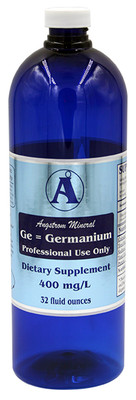Angstrom Minerals - Silica 32 oz
700 mg/L = 700 ppm
Liquid Silica Mineral
Ionic Silica
Cell Ready Silica
Water Soluble Silica
Angstrom Minerals - Silica 32 oz
700 mg/L = 700 ppm
Liquid Silica Mineral
Ionic Silica
Cell Ready Silica
Water Soluble Silica
Why Choose Angstrom Minerals Silica?
Angstrom Minerals Silica 32 oz is a premium liquid ionic supplement delivering 700 ppm (3.5 mg elemental silica per tsp) to support collagen formation, bone health, and beauty. With 192 servings in a BPA-free bottle, this cell-ready formula is made with silica and reverse osmosis water, ensuring 99.9% absorption without digestive barriers. Unlike traditional supplements, our angstrom-sized particles (0.10 nm) deliver nutrients directly to your cells, maximizing efficacy.
Free from sugars, starch, artificial flavors, colors, preservatives, or animal by-products, this vegan, non-GMO, and gluten-free supplement is perfect for enhancing skin elasticity, hair strength, nail growth, and joint flexibility.
Silica is known as a beautifying mineral and there are also many health benefits associated with it. It not only causes the strengthening of connective tissues and bones, but is also useful in taking care of nails, hair and skin.
Health Benefits of Silica. Silica is sometimes called the "beauty mineral" because it improves skin elasticity and hair and nail growth. Silica helps ensure collagen elasticity of all connecting tissues in the body, including tendons and cartilage. This reduces aches and pains and maintains your body's flexibility. It has also been determined that high levels of blood serum silica keep arterial plaque from building and clogging blood vessels.
- Aids In Hair, Skin And Nail Health
- Supports Elasticity Of Connective Tissues
- Relieves Aches And Pains
Silica is found in all of the tissues, especially the resistive tissue such as the skin, dura mater, fascia, hair, nails and tendons.
Silica Functions in the Body:
- Increases vigor, energy and strength
- Is found in all tissues, especially the resistive tissue
- Reinforces walls, linings, ligaments, membranes, nails and hair
- Increases alkalinity of the body
- Helps in transfer of nerve impulses
- Aids in retention of electricity and body heat










